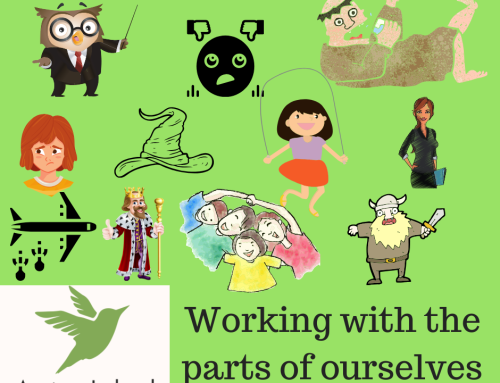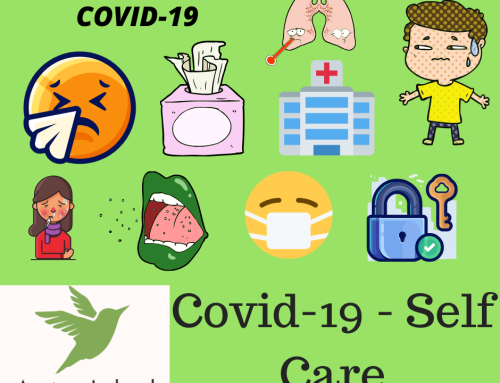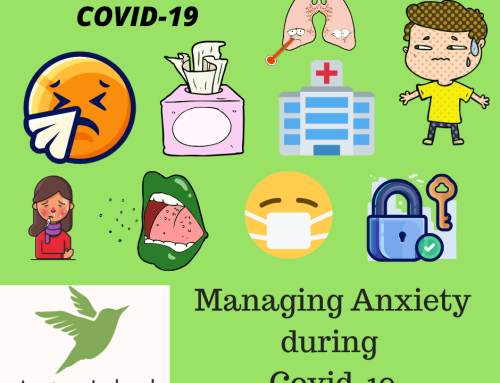Control Fallacies: The idea of being helpless or responsible for our lives are very important narrative elements in all our lives, as is our sense of cause and affect. Wanting to know what causes things to happen to us and around us is a very human thing and it can form the rational for our behaviors and our anxieties.
Existentially we make meaning of what is around us and create a narrative of the things that happen in our lives. However, sometimes we can get the mix wrong and believe that we are either completely powerless over what happens to us or that we are completely powerful and responsible for others.
The truth lies somewhere in the middle, that while we do have responsibility and freedom to make changes in our lives, our powerlessness only starts where we end. I am drawn to a quote I read recently that said “luck is probability taken personally”. For me this highlights how in life sometimes we have to accept that things happen and that we have a place in the universe, but are not at the centre of it. Having a balanced view of what and who is in our control is important to give us a good rational grounding in life.
Yet as I mentioned we can get the balance of this wrong. There are two ways we can distort our sense of power and control. We can see ourselves as helpless and externally controlled, or as omnipotent and responsible for everyone around us.
Feeling we have no control:
Feeling externally controlled keeps us stuck. We don’t believe we can really affect the basic shape of our life, let alone make any difference in the world. Everywhere we look we see evidence of human helplessness. Someone or something else is responsible for our pain, our loss, and our failure.
They did it to us. “The economy means there is no point in trying to find a job”. “I’m too old to try dating, nobody will want me”. “The men who robbed me made me feel I can’t leave the house”. These fallacies are only true when we believe them. We are making decisions that create self-fulfilling prophecies.
We find it difficult to strive for solutions because they probably wouldn’t work anyway. An extreme example of this fallacy is the person who cheats and lies to their partner and when they leave them they feel that it is all the other persons fault for leaving. They don’t see how their own actions affect what happens to them.
They can’t imagine how they had anything to do with it. They were the passive victim. Socio-economic class growing up can also make some people feel powerless and unable to change their situation. As can gender, race, sexuality, weight, disability, nationality and religion.
These important parts of identity can be used against us in life by others, but we can also use them as a shield to protect ourselves from having to take responsibility. Oversubscription to the idea of destiny or everything that happens for a reason also can buttress us from our job of dictating our lives
Many clients I see can end up this way as a response to harsh upbringings and feelings of being powerless. It can go that as a child the person was so powerless to change the situation and was given messages of powerlessness. Then their way of interpreting the now will always lead them down the road of: “there’s no point in trying” and “what hope do I have to change” – I’m just little old powerless me.
The truth of the matter is that we are constantly making decisions, and that every decision affects our lives. In some way, we are responsible for nearly everything that happens to us.
Feeling we have omnipotent control:
The opposite of the fallacy of external control is the fallacy of omnipotent control. If we experience this distortion, we feel responsible for everything and everybody. We carry the world on our shoulders.
Everyone at work depends on us. Our friends depend on us alone. We are responsible for many people’s happiness and any neglect on our part may leave them lonely, rejected, lost or frightened.
We have to right all wrongs, fill every need, and balm each hurt. And if we don’t, we feel guilty. Omnipotence depends on three elements: sensitivity to the needs of people around us, an exaggerated belief in our power to fill those needs and, the expectation that we, and not they, are responsible for filling those needs.
In this, I have seen clients who feel like at work they must be there, or everything falls apart. They can view others as incompetent and end up deskilling people around them. As parents, they can limit the opportunities of their children to grow while at the same time placing insane pressure on themselves.
The work is never done. Emotionally these people need to please and make everyone feel good. They can slip into other distortions already covered in other articles and feel that others are always judging and thinking about them.
This leads to Mind Reading, Polarized thinking, Filtering, Catastrophizing and especially Personalization. The person with this view normally has taken on a lot of responsibility in childhood or at some stage of life and feels this responsibility deep into their bones.
The truth of course is that others often do fine without us and that we are not responsible for the thoughts and emotions of those around us. We can affect those near us but we are ultimately not responsible for how people interpret their realities.
Control Fallacies comebacks:
Aside from natural disasters, we are responsible for what happens in our world. We make it happen. If we are unhappy there are specific choices we have made, and continue to make, that have the by-product of unhappiness.
We usually achieve in life whatever our top priority is. For example, if security is more important than anything else, we may have it at the expense of passion and excitement. We may long for excitement, but security was the higher priority. Asking ourselves, ‘What choices have I made that resulted in this situation? What decisions can I make now to change it?’
In terms of the omnipotence fallacy that everything around us is our fault and responsibility. The key to overcoming the omnipotence fallacy is to recognise that each one is responsible for him/herself. We are all captains of our own ships, making the decisions that steer our lives.
If someone is in pain, he or she has the ultimate responsibility to overcome or accept it. There is a difference between generosity and the slavish adherence to a conviction that we have to help everybody. Also remember, part of respecting others includes letting them live their own lives, suffer their own pains, and solve their own problems.
In both fallacies, we need to look at ourselves and why we are not taking responsibility for our own thoughts, feelings, physical states and actions! Giving away control or believing that we are all-powerful over others are distractions from the facts that the only things we are true masters of are ourselves.
Getting support for Control Fallacies:
Returning to the truths about life and what we control does come at something of a cost. Remember what was said to Spiderman: “With great power comes great responsibility”. Knowing that we are the master of ourselves means that no one else is going to be able take up the slack for our situation but ourselves.
Finding out that we are not omnipotent too means that the only person we can take care of 100% is ourselves. This is a radical idea for many people who are used to putting everyone else first!
Therapy is one way to get to the bottom of these questions and at Anxiety Ireland we have a team of accredited psychotherapists who work helping thousands of people with anxiety every year. We are always happy to answer messages to our page or I am happy to take calls/text to see how I can help: 087 063 0948.
Other Distorted Thinking styles are also extremely important for how we deal with and suffer from anxiety. Distorted thinking styles include: Filtering, Polarized Thinking, Over-generalization, Mind Reading, Catastraphizing, Personalization, Control Fallacies, The Fallacy of Fairness, Emotional Reasoning, The Fallacy of Change, Global Labeling, Blaming, Shoulds, Being Right and Heaven’s Rewards Fallacy.
If curious about anxiety please feel free to visit our website, take our anxiety quiz or get anxiety help. On this page we will continue to write about Anxiety and related topics.. In our next blog we will be discussing the Fallacy of Fairness.
Please like, comment and share if this was useful!
Michael
Team Anxiety Ireland
Anxiety is a merry-go-round, going no where fast, it’s ok to step off.




